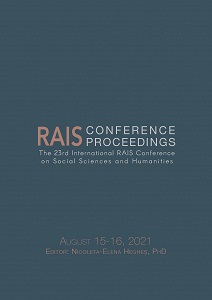Anger as a Crime Generating Factor
Anger as a Crime Generating Factor
Author(s): Cristian Dan
Subject(s): Criminal Law, Criminology
Published by: Scientia Moralitas Research Institute
Keywords: anger; morality, genetics; criminal law
Summary/Abstract: In the early stages of the evolution of the human species, feelings and sensations played a particularly important role in adapting and sustaining existential activities and how to integrate man in relation to the surrounding nature. Of all the feelings, the predominant psychological characteristic was the feeling of anger, coming from the need to preserve, to defend life and things acquired, in front of the attackers who could be both fierce animals and other fellows of the same species. For millions of years, these mechanisms have contributed to the intrinsic and external development of society, being present in human interactions within tribes, cities, villages and cities. Being a sentimental trait developed over such a long period of time, the feeling of anger, inscribed in human DNA, is nowadays a dangerous factor, generating antisocial behaviors and actions that are subject to Criminal Law, which we often learn to control it. The article aims to analyze this mechanism, from a historical, psychological and cultural point of view in relation to Criminal Law and the facts determined by this feeling, highlighting, on the one hand, the crimes that can be committed under its rule, and on the other part, the methods of preventing and combating them identified in today’s society.
Book: Proceedings of the 23rd International RAIS Conference on Social Sciences and Humanities
- Page Range: 67-70
- Page Count: 3
- Publication Year: 2021
- Language: English
- Content File-PDF

